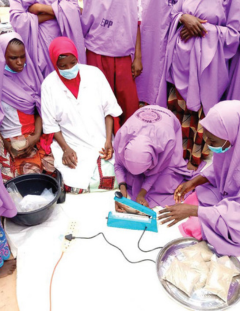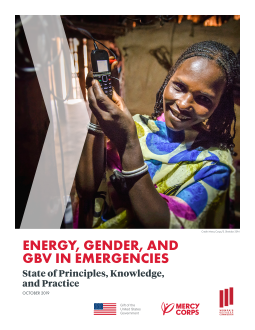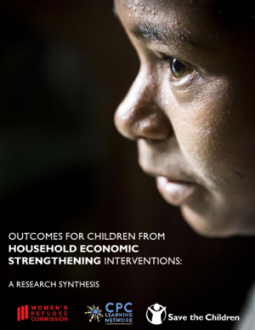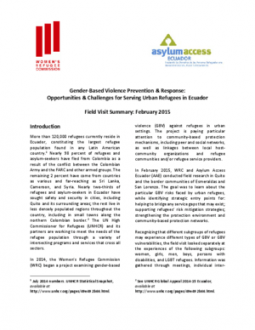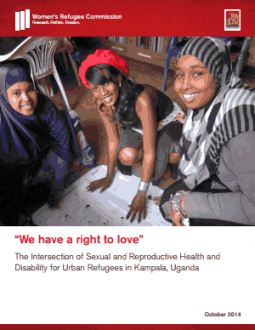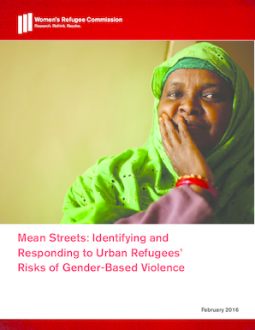
Mean Streets: Identifying and Responding to Urban Refugees’ Risks of Gender-Based Violence
PublishedA deeper understanding of the nuances and complexities of urban risks is essential to addressing violence and bridging the protection gaps affecting marginalized groups who have been traditionally overlooked in humanitarian response. Protecting refugees with heightened risks – women, adolescent girls, LGBTQI+ individuals, persons with disabilities, sex workers and male survivors of sexual violence – requires innovative, tailored programming and outreach.
Recommendations
- Systematize and broaden engagement of local actors.
- Develop proactive, targeted strategies for addressing GBV risks related to shelter and livelihoods.
- Prioritize, and earmark resources for, targeted actions and proactive outreach tailored to meet the needs of different at-risk subpopulations.
- Formalize non-discrimination and standards of care for engaging all refugee subpopulations, put accountability mechanisms in place for UNHCR partners, and take a proactive approach to eliminating discrimination.
Full Report
An analysis of the unique protection challenges and opportunities afforded by urban settings, including the risks specific to different groups.
Executive Summary
And overview recommendations to mitigate GBV risks for urban refugees
Women
Women face a variety of GBV risks in their daily lives – physical, sexual, emotional, and economic. They learn to cope with – or structure their movements around – the gender discrimination already entrenched in those societies.
Children and Adolescents
For children and adolescent refugees, GBV risks take on new dimensions in urban settings — within the home, at school, and while working.
LGBTI Refugees
LGBTI refugees face higher levels of discrimination and violence, yet little attention has been paid to their GBV risks and what humanitarian actors can do to help mitigate them.
Refugees Engaged in Sex Work
There is little practical guidance to appropriately address the protection needs of refugees who sell sex and little knowledge about how to present them with specialized information, services, and referral options.
Persons with Disabilities
There are significant gaps in evidence around effective strategies for GBV risk mitigation for refugees with disabilities in urban settings. Stigmatization, discrimination and isolation increase their risks.
Men, Boys, and Male Survivors of Gender-based Violence
Evidence suggests that men and boys are more at risk in urban environments than camps, and that male survivors are likely to migrate to urban centers to find medical care and anonymity.


